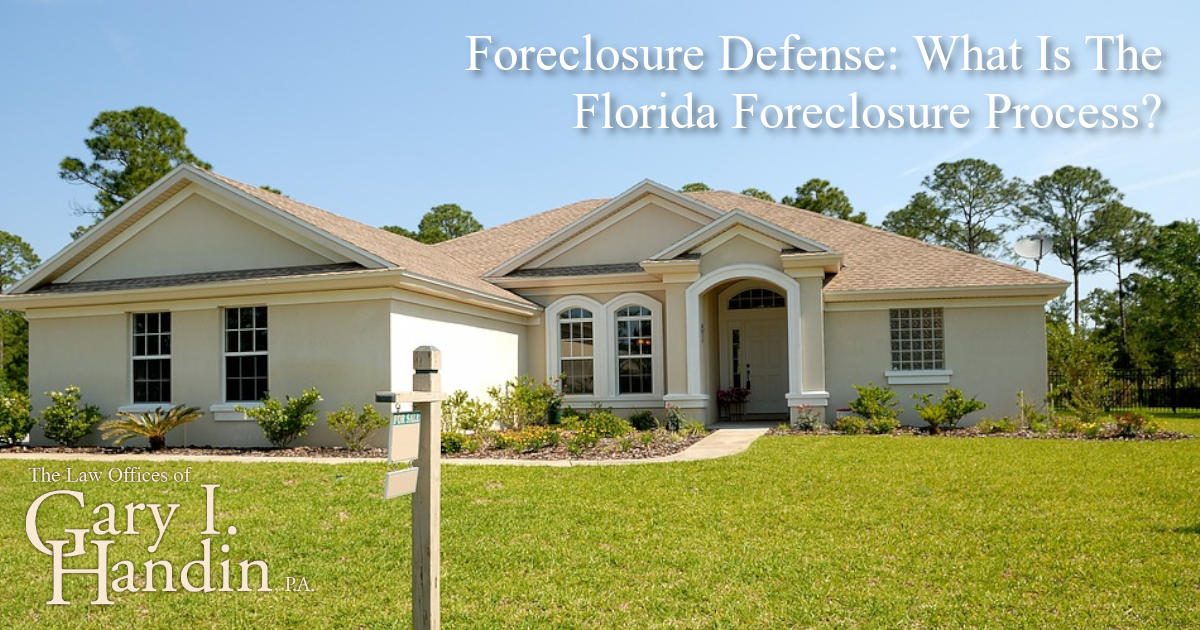
While nobody wants to face even the idea of foreclosure, the harsh reality is that one in every 200 homes in the United States will face foreclosure, according to the Federal Deposit Insurance Corporation (FDIC). It is even more vital for Florida residents to understand the foreclosure process timeline can vary significantly from case to case. Here the expert foreclosure defense attorneys at the law office of Gary I. Handin, discuss everything you need to know about the process without all the complications.
Foreclosure Basics
Most people understand that foreclosure is when the home loan lender tries to recover what the homeowner owes after defaulting on their loan by selling the property. Though it seems like it should be a straightforward process, many steps can complicate and draw out a foreclosure. It is impossible to say that there is any typical foreclosure case considering that the reason behind the foreclosure, the amount owed, and even the lender will differ considerably. While the process may be different every time, there are fundamental aspects and steps to know.
Steps Of Florida Foreclosure
Again, every foreclosure process is different, but most that occur in Florida will consist of most, if not all, of these steps.
Step One: Homeowner Goes Into Default
While it may seem obvious, if the borrower avoids missing payments on their property, a foreclosure will not occur. In most cases, the creditor will send the borrower a notice of missed payment that may or may not include late fees. If the owner handles the amount, the foreclosure process will end. If the owner continues to miss payments, the process will continue.
Step Two: Loss-Mitigation & Meeting With An Attorney
This step is when the borrower must discuss their options with the lender. As mitigation alternatives, like short sales or loan modification can be reached, it is in the owner’s best interest to meet with a dependable foreclosure defense attorney to discuss your options. They will also simplify the process by completing burdensome paperwork and answering complicated legal questions.
Step Three: Notice Of Default
Issuing a notice of default, a written civil action complaint against the debtor, is the foreclosure process’s official beginning. For those who do not have adequate legal representation, the entire process can take between six months and a year.
Step Four: Summons & Complaint Filing
Lenders begin the legal process by filing a summons and complaint with a Lis Pendens that legally acknowledges the lender is suing the borrower, and the documents are accessible through Public Records. An official will also serve the borrower with legal documents. The borrower then has 20 days to answer and the summons with the help of their attorney. In the event the debtor doesn’t answer, the debtor will be defaulted and the process will continue without their defense.
Step Five: Summary Judgment Motion Or Trial
In most cases, the lender will file for summary judgment to avoid court. If it is granted, both the lender and the borrower will be able to present their cases. If the summary judgment isn’t approved, a trial will be held. In either case, the decision will follow.
Step Six: Sale Of Property
In the case that the lender wins the motion or trial, the home can go up for auction in as little as 45 days of the decision. After the house sells, the former owner must vacate the property or face eviction.
Step Seven: Deficiency Judgement
The Florida foreclosure process includes procedures whereby the lender can seek further compensation if the sale did not cover the loan’s remaining balance due. Expert defense attorneys can help to possibly avoid this result. Under today’s law in the State of Florida, the lender has one year after the judgment of foreclosure within which to seek a deficiency judgment.
Foreclosure Defense In Coral Springs
The foreclosure process can be overwhelming for anyone, especially Florida residents. If you are facing foreclosure or have questions about the process or your options, contact The Law Offices of Gary I. Handin online, locally at (954)-796-9600, or toll-free at 1-877-815-4560 today!





